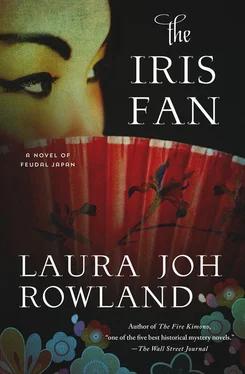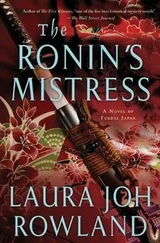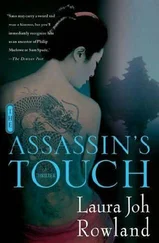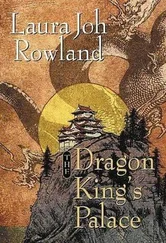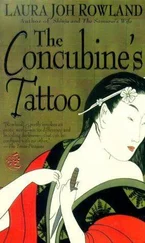Laura Rowland - The Iris Fan
Здесь есть возможность читать онлайн «Laura Rowland - The Iris Fan» весь текст электронной книги совершенно бесплатно (целиком полную версию без сокращений). В некоторых случаях можно слушать аудио, скачать через торрент в формате fb2 и присутствует краткое содержание. Год выпуска: 2014, ISBN: 2014, Издательство: St. Martin, Жанр: Исторический детектив, на английском языке. Описание произведения, (предисловие) а так же отзывы посетителей доступны на портале библиотеки ЛибКат.
- Название:The Iris Fan
- Автор:
- Издательство:St. Martin
- Жанр:
- Год:2014
- ISBN:9781466847439
- Рейтинг книги:3 / 5. Голосов: 1
-
Избранное:Добавить в избранное
- Отзывы:
-
Ваша оценка:
- 60
- 1
- 2
- 3
- 4
- 5
The Iris Fan: краткое содержание, описание и аннотация
Предлагаем к чтению аннотацию, описание, краткое содержание или предисловие (зависит от того, что написал сам автор книги «The Iris Fan»). Если вы не нашли необходимую информацию о книге — напишите в комментариях, мы постараемся отыскать её.
The Iris Fan — читать онлайн бесплатно полную книгу (весь текст) целиком
Ниже представлен текст книги, разбитый по страницам. Система сохранения места последней прочитанной страницы, позволяет с удобством читать онлайн бесплатно книгу «The Iris Fan», без необходимости каждый раз заново искать на чём Вы остановились. Поставьте закладку, и сможете в любой момент перейти на страницу, на которой закончили чтение.
Интервал:
Закладка:
“That is why I came,” Sano said, “but never mind. It probably wasn’t a murder. The boy had measles. Chances are, examining his body wouldn’t have revealed anything else.” He didn’t want Dr. Ito to think he’d let Sano down. “I’m glad just to see you again.”
“I am glad, too, but I have heard that things have not gone well for you.” Dr. Ito’s expression mixed concern with pleasure. “Associating with me is an additional hazard.”
“Not as much of a hazard as before. Yanagisawa knows.” Sano gave a brief summary of recent events.
Dr. Ito chuckled. “No matter how old one gets, surprises never cease.” He grew somber again. “Even if Yanagisawa isn’t a problem, you are running the risk of capture by Lord Ienobu’s troops. I would hate for you to have taken the risk for nothing. Let us examine this boy who died. What was his name?” Sano hesitated, wondering how much good an examination by a blind scientist would do. Dr. Ito said, “Mura can show you the body. Perhaps there is evidence to be found without doing an autopsy.”
“Dengoro. He was one of the shogun’s male concubines,” Sano said.
Mura walked to the row of swathed corpses and lifted the smallest one; it lay closest to the fire pit. Marume whistled. “We got here just in time. I’ll wait out here.”
Sano followed Mura into the morgue. Dr. Ito trailed them. He knew his way so well that he didn’t bump into the waist-high tables, the stone troughs for washing the dead, or the cabinets filled with equipment. Mura laid the corpse on a table, lit lanterns on stands around it, then asked Sano, “Can you cover your nose and mouth? That’s what we do when we work with the bodies of people that had measles.”
“To keep out the evil spirits of disease,” Dr. Ito explained. “I have a theory that diseases are caused by something other than evil spirits, but I have not yet devised a means of proof.” He added wistfully, “I probably never will.”
Sano had already been exposed to the shogun, but he tied his kerchief around the lower half of his face. Mura, after covering his own face and exchanging his heavy leather gloves for thinner ones, unwrapped Dengoro. The boy’s body, dressed in a green night robe, was stiff and shrunken, the gray skin blotched with darkened red measles rash. Eyes closed, mouth slightly open, his delicate face wore a peaceful expression. Sano felt sorry for this child whose innocence had been destroyed before the end of his short life. At least Dengoro didn’t look as if he’d died violently.
That was good for Dengoro, bad for Sano’s hope of proving that Lord Ienobu was responsible for the attack on the shogun and the witness’s death.
Mura took up a knife and cut the robe off the body. Dengoro’s skin was smooth, unmarked except for the measles and a scab on a skinned knee. Mura turned the body over, with the same disappointing results.
“Any wounds or blood on him?” Dr. Ito asked.
“None,” Sano said.
“He could have been poisoned,” Dr. Ito said. “That’s a common way of making a murder look like a natural death. Examine his mouth.”
Mura laid the body on its back and used a bamboo stick to push back the flaccid lips. Sano peered at grayish-pink gums, tongue, and throat. “No burns or swelling.” Had his instincts steered him wrong? Were they, like his physical strength, compromised by age? Suspicious timing didn’t mean Dengoro’s death was in fact murder.
“An autopsy might or might not reveal signs of poison,” Dr. Ito said. “Some poisons are undetectable.”
Loath to subject Dengoro to an autopsy on the off chance that evidence would turn up, Sano said, “Let me take a closer look at him before Mura does any cutting.” He held a lantern near the body while he examined Dengoro, starting at his head and moving downward. Something on Dengoro’s thigh caught his attention-what looked to be a smudge of dirt in an odd place. His instincts quickened in spite of his cautioning himself not to imagine clues. He asked Mura for a magnifying glass and held it over the smudge. Enlarged, it took on a blue color and revealed a distinctive pattern of curved lines and whorls. Sano’s heart thumped.
“What is it?” Dr. Ito sounded impatient because he sensed that Sano had found something he couldn’t see.
“A bruise shaped like a fingerprint.”
Recollection shone in Dr. Ito’s blind eyes. “I’ve seen that before. Once.”
“Fourteen years ago,” Sano agreed. “During my investigation into the series of deaths of high-ranking officials. They were murdered by dim-mak. ”
Dim-mak , the touch of death. It was the ancient martial arts technique of delivering a light tap that the victim might not even feel but was nonetheless fatal-sometimes immediately, sometimes days afterward. The speed of death was directly proportional to the force the killer used. The energy from the tap traveled through the victim’s body to the brain and caused a hemorrhage that oozed blood until the victim dropped dead.
“Very few people have ever mastered the technique,” Dr. Ito reminded Sano. “Could this be the same killer as in your previous case?”
“No. He’s dead. I’m sure because I killed him.” This investigation seemed like a tangle of sharp-edged vines from which he’d been trying to fight his way out. Now a tendril he hadn’t noticed glowed with the red-hot light of revelation and slipped free of the tangle.
“Do you know of anyone else who is capable of dim-mak ?” Dr. Ito asked.
“Yes.” The clue that Sano had never expected seemed to pulse like a cut vein, pumping out poisoned sap that burned his flesh. It wasn’t going to prove Lord Ienobu was responsible for the attack on the shogun, turn his allies against him, or stop the war. It explained so much, and in hindsight made perfect sense; yet it pointed Sano in a direction he was so loath to go.
“Hirata.”
31
In a secluded garden inside Lord Mori’s estate, moonlight shone through the mist around a picturesque wooden cottage. Light from the windows gilded the snowy grass. Inside the cottage, Masahiro and his new bride stood on opposite sides of a bed laid on the floor. Kikuko smiled. Her eyes, her long black hair, her pale skin, and the white silk of her wedding kimono gleamed. Masahiro stared at her and gulped.
He’d been ready to hate Kikuko because she wasn’t the girl he’d wanted to marry. But he felt a heart-pounding attraction to her. His promise to Taeko had been easy to make before he’d seen Kikuko, whom he’d barely remembered from when they’d been children, but he couldn’t tear his gaze off her. He grew erect at the very thought that she was his wife, that he could bed her tonight.
He had to keep his promise. He was in love with Taeko, and he wanted to be true to her, but his guilt didn’t lessen his desire for Kikuko.
Kikuko skipped around the bed. He couldn’t help turning toward her. She tilted her head, batted her eyes, and said, “I like you.”
Masahiro knew she was feebleminded, but his body didn’t care. He wanted her with an urgency he’d never felt before. He backed away from Kikuko. It reminded him of the time he’d grabbed a metal spear during martial arts practice on a freezing day. His fingers had stuck to it, and when he’d pulled them free, pieces of his skin had ripped off.
A frown wrinkled Kikuko’s smooth brow. “Don’t you like me?”
This wasn’t her fault, and Masahiro didn’t want to hurt her feelings. She’d had no more choice in the matter than he. It was a good thing that she probably didn’t know what a bride and groom were supposed to do on their wedding night.
“I’m just tired,” Masahiro said. “I’m going to sleep.”
Читать дальшеИнтервал:
Закладка:
Похожие книги на «The Iris Fan»
Представляем Вашему вниманию похожие книги на «The Iris Fan» списком для выбора. Мы отобрали схожую по названию и смыслу литературу в надежде предоставить читателям больше вариантов отыскать новые, интересные, ещё непрочитанные произведения.
Обсуждение, отзывы о книге «The Iris Fan» и просто собственные мнения читателей. Оставьте ваши комментарии, напишите, что Вы думаете о произведении, его смысле или главных героях. Укажите что конкретно понравилось, а что нет, и почему Вы так считаете.
